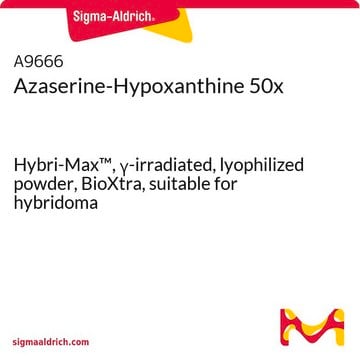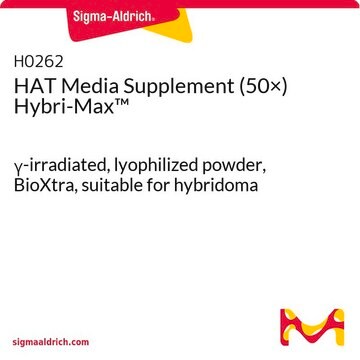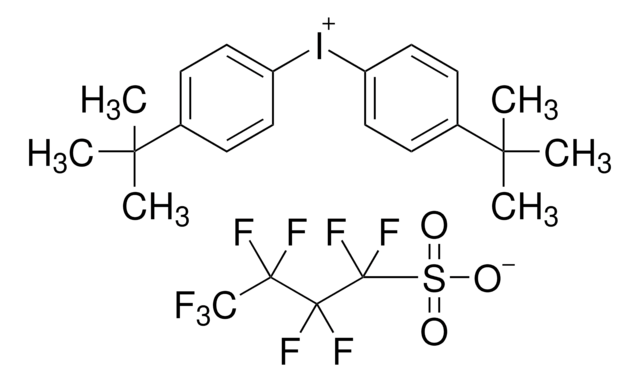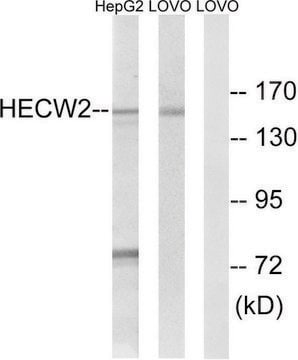A1164
Azaserine
Hybri-Max™, γ-irradiated, 50x, lyophilized powder, BioXtra, suitable for hybridoma
Synonyme(s) :
O-Diazoacetyl-L-serine
About This Item
Produits recommandés
Qualité
Hybri-Max™
Niveau de qualité
Stérilité
γ-irradiated
Gamme de produits
BioXtra
Forme
lyophilized powder
Technique(s)
cell culture | hybridoma: suitable
Impuretés
endotoxin, tested
Spectre d'activité de l'antibiotique
fungi
Mode d’action
enzyme | inhibits
Température de stockage
−20°C
Chaîne SMILES
N[C@@H](COC(=O)C=[N+]=[N-])C(O)=O
InChI
1S/C5H7N3O4/c6-3(5(10)11)2-12-4(9)1-8-7/h1,3H,2,6H2,(H,10,11)/t3-/m0/s1
Clé InChI
MZZGOOYMKKIOOX-VKHMYHEASA-N
Vous recherchez des produits similaires ? Visite Guide de comparaison des produits
Description générale
Application
Actions biochimiques/physiologiques
Reconstitution
Informations légales
Mention d'avertissement
Danger
Mentions de danger
Conseils de prudence
Classification des risques
Acute Tox. 3 Oral - Carc. 2
Code de la classe de stockage
6.1C - Combustible acute toxic Cat.3 / toxic compounds or compounds which causing chronic effects
Classe de danger pour l'eau (WGK)
WGK 3
Point d'éclair (°F)
Not applicable
Point d'éclair (°C)
Not applicable
Équipement de protection individuelle
Eyeshields, Faceshields, Gloves, type P3 (EN 143) respirator cartridges
Certificats d'analyse (COA)
Recherchez un Certificats d'analyse (COA) en saisissant le numéro de lot du produit. Les numéros de lot figurent sur l'étiquette du produit après les mots "Lot" ou "Batch".
Déjà en possession de ce produit ?
Retrouvez la documentation relative aux produits que vous avez récemment achetés dans la Bibliothèque de documents.
Notre équipe de scientifiques dispose d'une expérience dans tous les secteurs de la recherche, notamment en sciences de la vie, science des matériaux, synthèse chimique, chromatographie, analyse et dans de nombreux autres domaines..
Contacter notre Service technique










